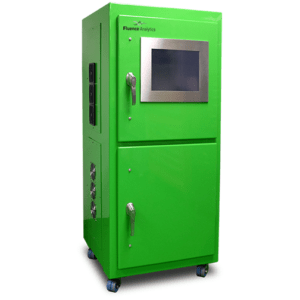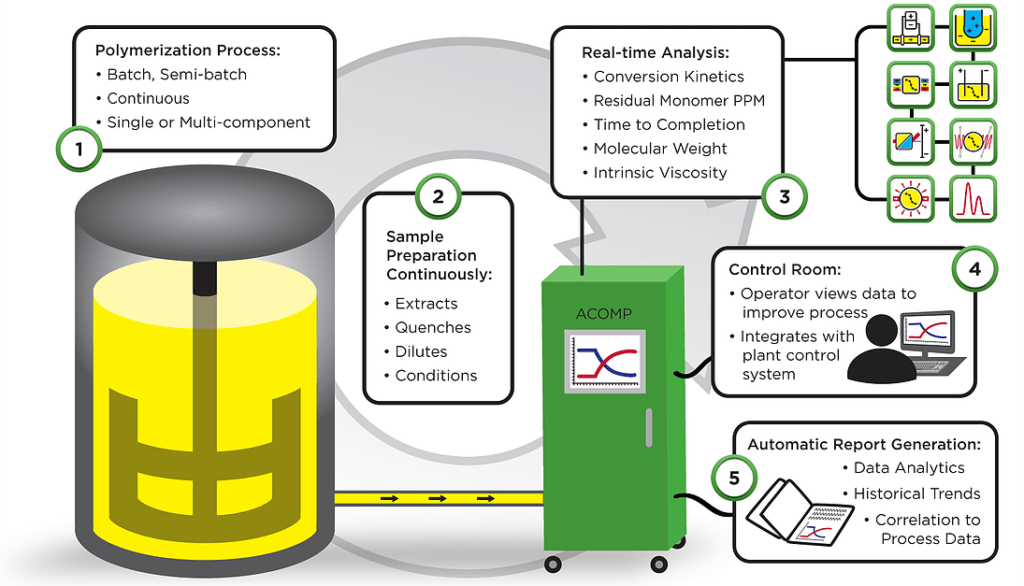 Realtime Monitoring for Polymerization Reactions
Realtime Monitoring for Polymerization Reactions
ACOMP is a smart manufacturing system that provides realtime monitoring of polymerizations during production. This automated monitoring solution produces real-time insight into reaction kinetics and polymer properties such as residual monomer, monomer conversion, polymer composition, molecular weight, and intrinsic viscosity. ACOMP enables optimized process control, resulting in increased polymer yield, quality, and consistency, increased worker safety, reduced cycle time, reduced VOCs, and reduced energy and raw material usage.
Ready to learn how ACOMP can start optimizing your polymerization processes with real-time data?
How ACOMP Works
ACOMP Case Study
Background
A global specialty chemical company produces high-value polymer products in batch reactions. Prior to ACOMP, the process and quality control procedure was to manually pull samples from the reactor for laboratory characterization of polymer properties such as molecular weight, intrinsic viscosity, composition and residual monomers.
Because the manufacturer lacked the ability to continuously monitor monomer conversion, residuals, and quality, important data for understanding the reaction endpoint and potentially controlling the polymerization process went unknown. This resulted in longer than required cycle times and sometimes the production of off-spec polymer batches requiring re-work.
Solution
The manufacturer purchased the Fluence Analytics industrial ACOMP. The ACOMP system installed at the customer’s facility enabled automatic, realtime measurement and data output to the distributed control system of polymer properties during production. Now, the manufacturer can immediately respond when the polymerization process or its inputs require adjustments.
ACOMP thus provides the manufacturer clear insight into monomer conversion and polymer quality during the reaction and predicts the reaction endpoint, reducing costs and the reliance on physical sampling and testing. Benefits achieved by the manufacturer after the ACOMP installation include a 17% cycle time reduction, realtime product quality data, greater safety, and a reduction in energy usage or ‘over-cooking’ of batches. Based on this clear value, the customer purchased another industrial ACOMP for a second reactor at the same facility.

